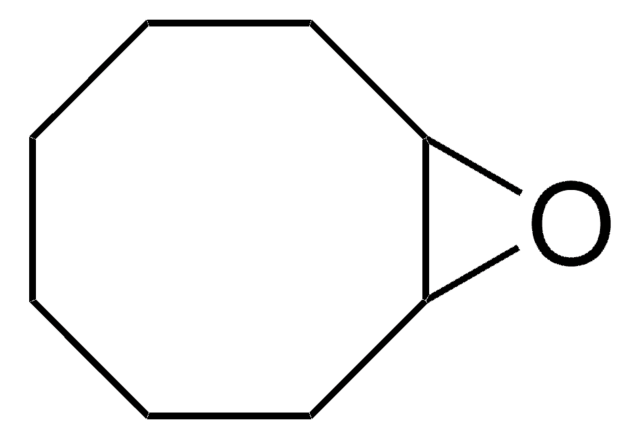764523
(E)-Cyclooct-4-enyl 2,5-dioxo-1-pyrrolidinyl carbonate
Synonym(s):
(E)-4-Cycloocten-1-yl 2,5-dioxo-1-pyrrolidinyl ester carbonic acid, trans-4-Cycloocten-1-yl 2,5-dioxo-1-pyrrolidinyl carbonate, TCO-N-hydroxysuccinimidyl carbonate, TCO-NHS, TCO-carbonate
About This Item
Recommended Products
form
solid
reaction suitability
reaction type: click chemistry
reagent type: linker
mp
90-105 °C
functional group
NHS ester
storage temp.
−20°C
SMILES string
O=C(ON1C(CCC1=O)=O)O[C@@H]2CC/C=C/CCC2
InChI
1S/C13H17NO5/c15-11-8-9-12(16)14(11)19-13(17)18-10-6-4-2-1-3-5-7-10/h1-2,10H,3-9H2/b2-1+/t10-/m1/s1
InChI key
OUGQJOKGFAIFAQ-TXXBHVLJSA-N
Application
related product
Storage Class Code
11 - Combustible Solids
WGK
WGK 3
Flash Point(F)
Not applicable
Flash Point(C)
Not applicable
Choose from one of the most recent versions:
Already Own This Product?
Find documentation for the products that you have recently purchased in the Document Library.
Customers Also Viewed
Our team of scientists has experience in all areas of research including Life Science, Material Science, Chemical Synthesis, Chromatography, Analytical and many others.
Contact Technical Service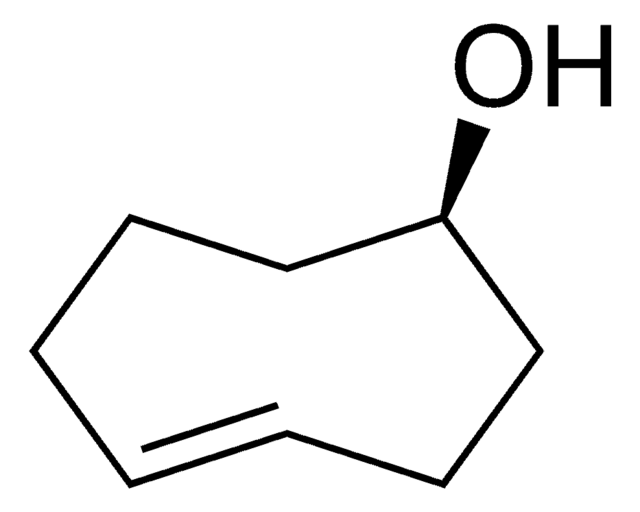
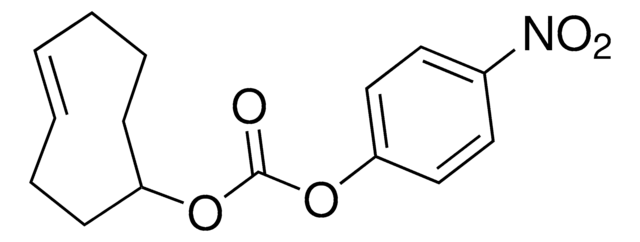
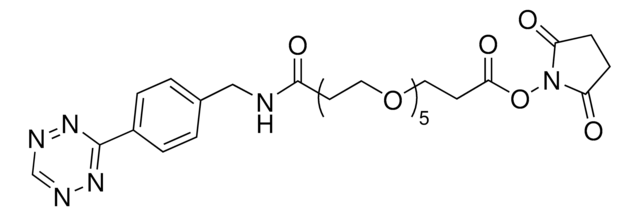

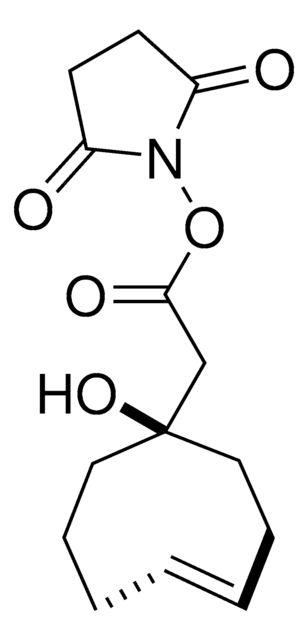
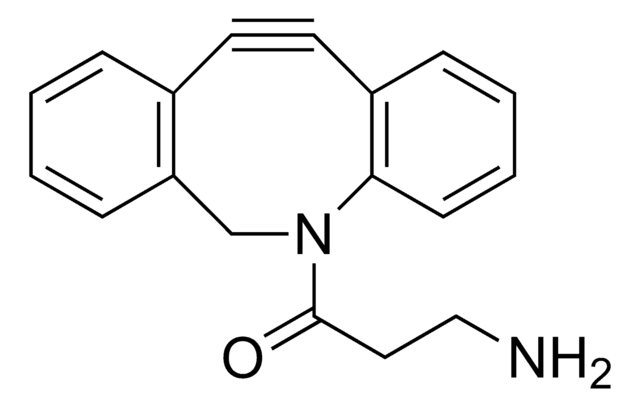
![(1R,8S,9s)-Bicyclo[6.1.0]non-4-yn-9-ylmethanol for Copper-free Click Chemistry](/deepweb/assets/sigmaaldrich/product/structures/171/632/0556139a-2db5-4678-a6ec-a26a693fd574/640/0556139a-2db5-4678-a6ec-a26a693fd574.png)
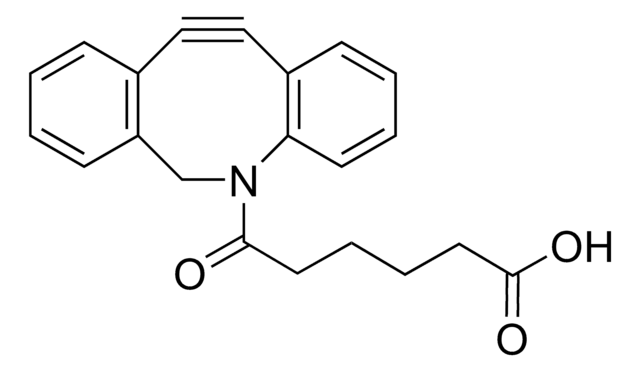
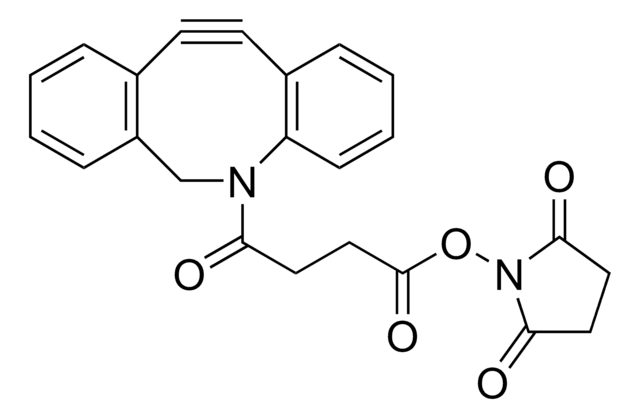
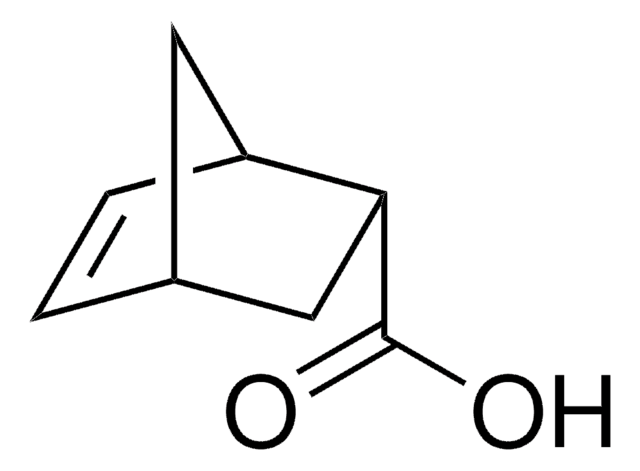
![(1R,8S,9s)-Bicyclo[6.1.0]non-4-yn-9-ylmethyl N-succinimidyl carbonate for Copper-free Click Chemistry](/deepweb/assets/sigmaaldrich/product/structures/969/022/d6776082-2f7a-47c7-bcd4-3830dac0fb7d/640/d6776082-2f7a-47c7-bcd4-3830dac0fb7d.png)
![O-(2-Aminoethyl)-O′-[2-(Boc-amino)ethyl]hexaethylene glycol ≥90% (oligomer purity)](/deepweb/assets/sigmaaldrich/product/structures/331/340/e7205caa-5181-4254-9bb1-be2fc6035009/640/e7205caa-5181-4254-9bb1-be2fc6035009.png)
